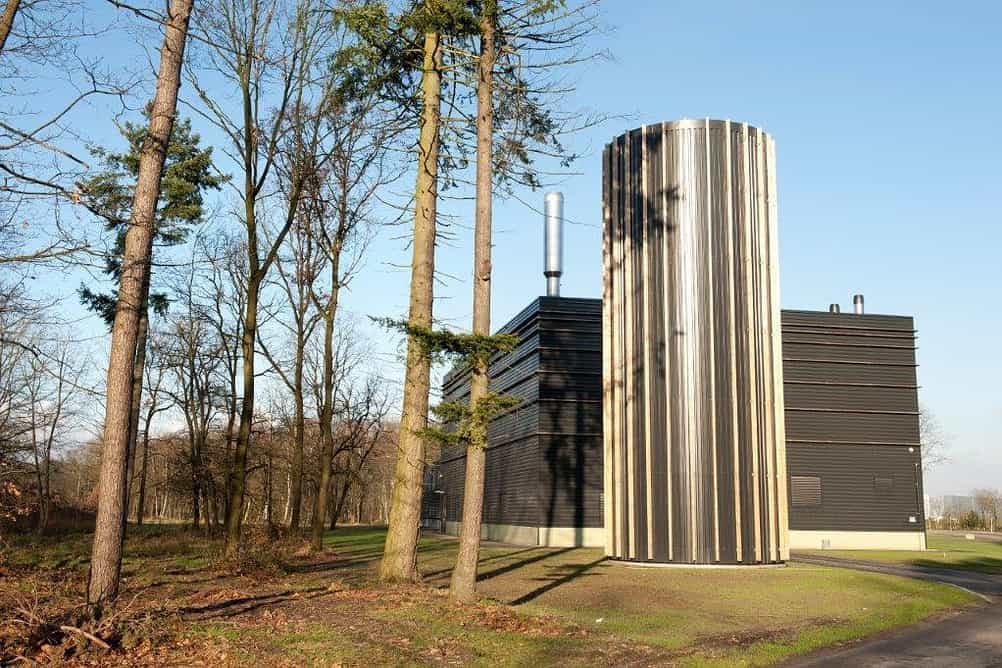Public energy company in Eindhoven to ensure a sustainable and reliable energy supply
Through close cooperation between the municipal energy company and local businesses, innovation in energy storage, smart grids, and sustainable energy generation can be accelerated.
Published on October 14, 2024

Bart, co-founder of Media52 and Professor of Journalism oversees IO+, events, and Laio. A journalist at heart, he keeps writing as many stories as possible.
The municipality of Eindhoven is taking a remarkable step in energy transition by establishing its own energy company. With the establishment of 'Eindhoven Energie BV', the city expects to gain more control over sustainable energy and heat supply. This development responds to the urgency of climate goals and offers new opportunities for the city and its residents. The first steps relate primarily to heat; electricity may follow later. Therefore, this step is not yet an immediate solution to grid congestion - “but it could eventually contribute to it,” said Alderman Rik Thijs.
The need for a municipal energy company
Establishing a public energy company does not come out of the blue. The 2016 Climate Ordinance established that greenhouse gas emissions in Eindhoven must be reduced to near zero by 2050. With the introduction of the Municipal Instruments Heat Transition Act (Wgiw) and the upcoming Collective Heat Act (Wcw), which will come into effect in 2025, the municipality will have a directing role in the heat transition. These laws place the responsibility on the municipalities to determine which neighborhoods will be off the gas and which heat alternative is best suited for that purpose.
Eindhoven is now taking matters into its own hands by establishing its own energy company, which will remain entirely in public hands. This company, 'Eindhoven Energie BV', focuses on developing and operating energy and heat projects. The first step is the establishment of 'Eindhoven Warmte BV', a subsidiary company responsible for the management and operation of heat networks.
How the energy company is organized
Eindhoven Energie BV will be a private limited company, with the municipality as the sole shareholder. This structure offers the municipality the flexibility to act as a director while allowing for collaborations with public and private parties. In the first phase, the energy company focuses mainly on heat projects, such as operating the heat network in Meerhoven. The first projects being considered are Stadhuisplein, Fellenoord, and 't Ven.
The public heat company will ensure that Eindhoven maintains a solid grip on the heat transition, focusing on sustainability, affordability and reliability. “With our own heat company, we can represent unique public interests while collaborating with market parties to accelerate the heat transition,” said Alderman Rik Thijs. The municipality expects to need €18 million as equity for the new limited liability company, plus more than €8 million as a budget for the first three years of the 13-person organization.
The effects on residents and businesses
One of the main advantages of a municipal energy company is that it allows the municipality to control energy costs for its residents and businesses. The company will be responsible for the distribution and delivery of renewable heat, with special attention paid to affordability and inclusivity. This is particularly important for vulnerable groups, who are often disproportionately affected by rising energy costs.

According to the municipality, the development of local heat networks and energy storage facilities will not only make the energy supply more sustainable but also create new opportunities for employment and innovation. The Brainport region, of which Eindhoven is a part, plays a crucial role. Innovation in energy storage, smart grids, and sustainable energy generation can be accelerated through close cooperation between the energy companies and local companies.
Energy companies in the Netherlands
The development is in line with a broader trend in the Netherlands. More and more municipalities are exploring the possibility of setting up their own energy companies, partly because of the expected entry into force of the Collective Heat Act in 2025. This law requires public or hybrid heat companies to carry out heat projects. As a result, private parties will play a less dominant role in the heat market.
Establishing municipal energy companies is causing a shift in the Dutch energy market. Whereas until now, commercial energy companies accounted for the majority of the energy supply, there is now room for public companies that focus primarily on public interests. This can lead to lower prices and a faster transition to sustainable energy. The municipality says it is attentive to possible distortions in market relations. “Developing as many activities as possible under the energy company is not a goal.”
Contribution to energy transition
The establishment of Eindhoven Energie BV fits into the broader energy transition goals. Eindhoven wants to emit 55% less CO₂ in 2030 compared to 1990 and strives for a completely sustainable energy supply in 2045. By taking control of its own energy supply, the municipality can not only better manage its climate goals but also respond more quickly to increasing energy demand and the need to build new energy infrastructures.
Also at the national level, the establishment of local energy companies such as Eindhoven Energie BV helps to realize the ambitions of the Climate Agreement. By taking the lead and implementing local sustainable energy solutions, municipalities contribute directly to reducing CO₂ emissions and accelerating the energy transition. In this way, Eindhoven is not only fulfilling its climate ambitions but could also set an example for other municipalities in the Netherlands.
